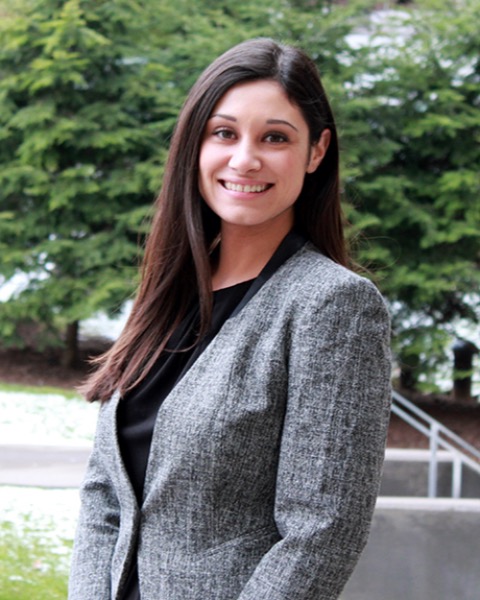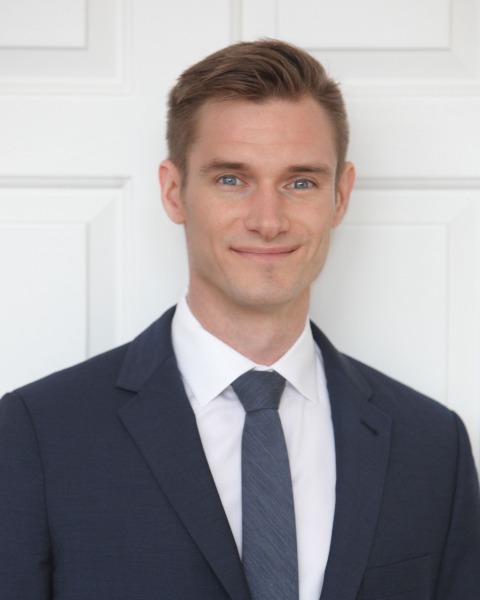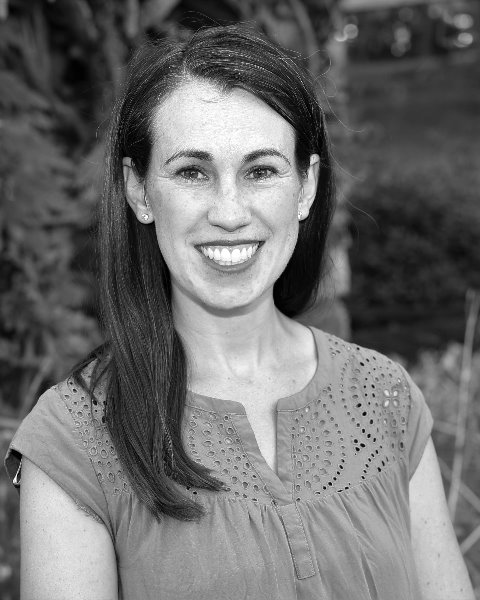Adult- Health Psychology / Behavioral Medicine
Symposium 101 - Leveraging Community Engagement to Develop Innovative Adapted Interventions and Improve Treatment Outcomes Among Populations with and/or vulnerable to HIV
Level of Familiarity: Moderate to advanced
Recommended Readings: Magidson, J. F., Joska, J. A., Regenauer, K. S., Satinsky, E., Andersen, L. S., Seitz-Brown, C. J., Borba, C. P. C., Safren, S. A., & Myers, B. (2019). "Someone who is in this thing that I am suffering from": The role of peers and other facilitators for task sharing substance use treatment in South African HIV care. The International journal on drug policy, 70, 61–69. https://doi.org/10.1016/j.drugpo.2018.11.004, Psaros, C., Stanton, A. M., Goodman, G. R., Raggio, G., Briggs, E. S., Lin, N., Robbins, G. K., & Park, E. R. (2023). Adapting, testing, and refining a resilience intervention for older women with HIV: An open pilot study. Journal of Women & Aging, 35(4), 395–415. https://doi.org/10.1080/08952841.2022.2094163, Batchelder, A. W., Foley, J. D., Kim, J., Thiim, A., Kelly, J., Mayer, K., & O'Cleirigh, C. (2021). Intersecting internalized stigmas and HIV self-care among men who have sex with men and who use substances. Social Science & Medicine, 275, 113824. https://doi.org/10.1016/j.socscimed.2021.113824, ,
-

Deja Clement, M.P.H., M.S. (she/her/hers)
Clinical Psychology Doctoral Candidate
Massachusetts General Hospital
CHELSEA, Massachusetts, United States -
JM
Jessica Magidson, Ph.D. (she/her/hers)
Assistant Professor
University of Maryland- College Park
College Park, Maryland, United States -

Jacklyn Foley, Ph.D. (she/her/hers)
Postdoctoral Fellow
Massachusetts General Hospital
Boston, Massachusetts, United States -

Matthew Sullivan, Ph.D. (he/him/his)
Psychologist
Massachusetts General Hospital
Boston, Massachusetts, United States -
KR
Kristen Regenauer, M.S. (she/her/hers)
Clinical Psychology Doctoral Student
University of Maryland- College Park
College Park, Maryland, United States -
AB
Abigail Batchelder, M.P.H., Ph.D. (she/her/hers)
Boston University School of Medicine & Department of Psychiatry Boston Medical Center
Boston, Massachusetts, United States -

Christina Psaros, Ph.D. (she/her/hers)
Associate Professor
Harvard Medical School
Boston, Massachusetts, United States
Chair(s)
Discussant(s)
Presenter(s)
Substantive progress towards ending the HIV epidemic globally and domestically centers on addressing socio-structural determinants of health (i.e., the barriers to preventative care and access to care).Historically, the response to the HIV epidemic has demonstrated the importance of engaging the community in mitigating the burden of HIV inequities, from advocacy for dedicated HIV funding to community-based participatory research to the national Ending the Epidemic (EHE) initiative, which takes an important step towards mandating meaningful collaboration between academic investigative teams and community partners conducting implementation science work. Successful interventions aimed at addressing the domestic and global HIV pandemic must be founded in theoretical frameworks and methodological tools that fully reflect and respond to the lived experience of affected communities. Further, research and actions on the social and structural determinants of HIV should place partnerships with community members at the forefront.
To help define this critical path, we discuss research and clinical innovations to engage communities in the conceptualization, operationalization, and utilization of novel methods to address the socio-structural determinants of HIV. First, Jacklyn Foley will discuss adapting cognitive-behavioral strategies to intervene on age-related comorbidities among older individuals living with HIV. Next, Matthew Sullivan will present data discussing the impact of socio-structural barriers and facilitators to PrEP uptake among people who use opioids and are vulnerable to HIV. Kristen Regenaur will discuss using a community-informed approach to solicit feedback on the use of a peer recovery coach model to increase HIV care engagement in South Africa. Next, Abigail Batchelder will discuss the development and iterative adaptation of a psycho-behavioral intervention aimed at addressing the unique needs of people with HIV who inject drugs. Lastly, Christina Psaros will discuss the development of an adapted provider-level resiliency intervention among nurses providing HIV care in South Africa. The work presented in this symposium highlights the need for continued methodological innovation, and specifically innovation driven by meaningful partnership and collaboration with community members, stakeholders, social and behavioral scientists, practitioners, and between members of any given community that must interact with systems of HIV prevention and care.
Dr. Jessica Magidson, an expert on the evaluation and development of peer and community health worker delivered behavioral interventions to improve treatment outcomes in substance use and HIV locally and globally in Sub-Saharan Africa will serve as the Discussant. She will offer her perspectives on opportunities to expand our understanding of using community-informed interventions to address socio-structural determinants of health across marginalized populations in different cultural and geographic settings. She will also speak to the ways in which these findings can inform cognitive behavioral treatment development.
Learning Objectives:
- Describe the development, adaptation, evaluation, and implementation of community-engaged interventions among SGM communities.
- Learn about research tools that can be used to better develop tailored clinical interventions among SGM communities.
- Identify innovative adaptive CBT strategies to address the unique psycho-social needs of SGM communities.
- Critically examine health disparities through an intersectional lens, considering multi-level determinants of health.
- Learn about research design centering voices of community members.
Presentations:
-
2:30 PM - 3:30 PM EST(SYM 101) Acceptability of a Cognitive Behavioral Therapy (CBT)-Based Group to Promote Healthy Aging Among Older People with HIV: Perspectives on the Importance of Careful Tailoring and Competent Delivery
Speaker: Jacklyn D. Foley, Ph.D. (she/her/hers) – Massachusetts General Hospital
Co-author: Madison Davis, MPH (she/her/hers) – Massachusetts General Hospital
Co-author: Stephanie Schiavo, Bachelors (she/her/hers) – Northeastern University
Co-author: Lauren Bernier, Bachelors (she/her/hers) – Boston University
Co-author: Abigail W. Batchelder, M.P.H., Ph.D. (she/her/hers) – Boston University School of Medicine & Department of Psychiatry Boston Medical Center
-
2:30 PM - 3:30 PM EST(SYM 101) Adapting Prep Delivery for People Who Use Opioid Drugs Across the Opioid Use Disorder (OUD) Treatment Cascade: Exploring Community Needs and Preferences to Improve Uptake
Speaker: Matthew Sullivan, Ph.D. (he/him/his) – Massachusetts General Hospital
Co-author: Madison Davis, MPH (she/her/hers) – Massachusetts General Hospital
Co-author: Abigail W. Batchelder, M.P.H., Ph.D. (she/her/hers) – Boston University School of Medicine & Department of Psychiatry Boston Medical Center
-
2:30 PM - 3:30 PM EST(SYM 101) Using a Stakeholder-driven Approach to Develop a Peer Recovery Coach Role for Task-sharing Substance Use Interventions in Community-based HIV Teams in South Africa
Speaker: Kristen S. Regenauer, M.S. (she/her/hers) – University of Maryland- College Park
Co-author: Kim Johnson, M.A. – South African Medical Research Council
Co-author: Sibabalwe Ndamase, B.S., B.A. – South African Medical Research Council
Co-author: Nonceba Ciya, Other – South African Medical Research Council
Co-author: Imani Brown, M.P.H. – University of Maryland- College Park
Co-author: Alexandra Rose, MSc (she/her/hers) – VA Puget Sound Health Care System
Co-author: Jessica Magidson, Ph.D. (she/her/hers) – University of Maryland- College Park
Co-author: Bronwyn Myers, PhD – Curtin University
-
2:30 PM - 3:30 PM EST(SYM 101) Iterative Adaptation of a Psycho-behavioral Intervention to Mitigate the Negative Consequences of Stigma for People with HIV Who Inject Drugs in Boston
Speaker: Abigail W. Batchelder, M.P.H., Ph.D. (she/her/hers) – Boston University School of Medicine & Department of Psychiatry Boston Medical Center
-
2:30 PM - 3:30 PM EST(SYM 101) Preferences for the Adaptation of a Resiliency Intervention Among Nurses Providing HIV Care in South Africa
Speaker: Christina Psaros, Ph.D. (she/her/hers) – Harvard Medical School

.png)
